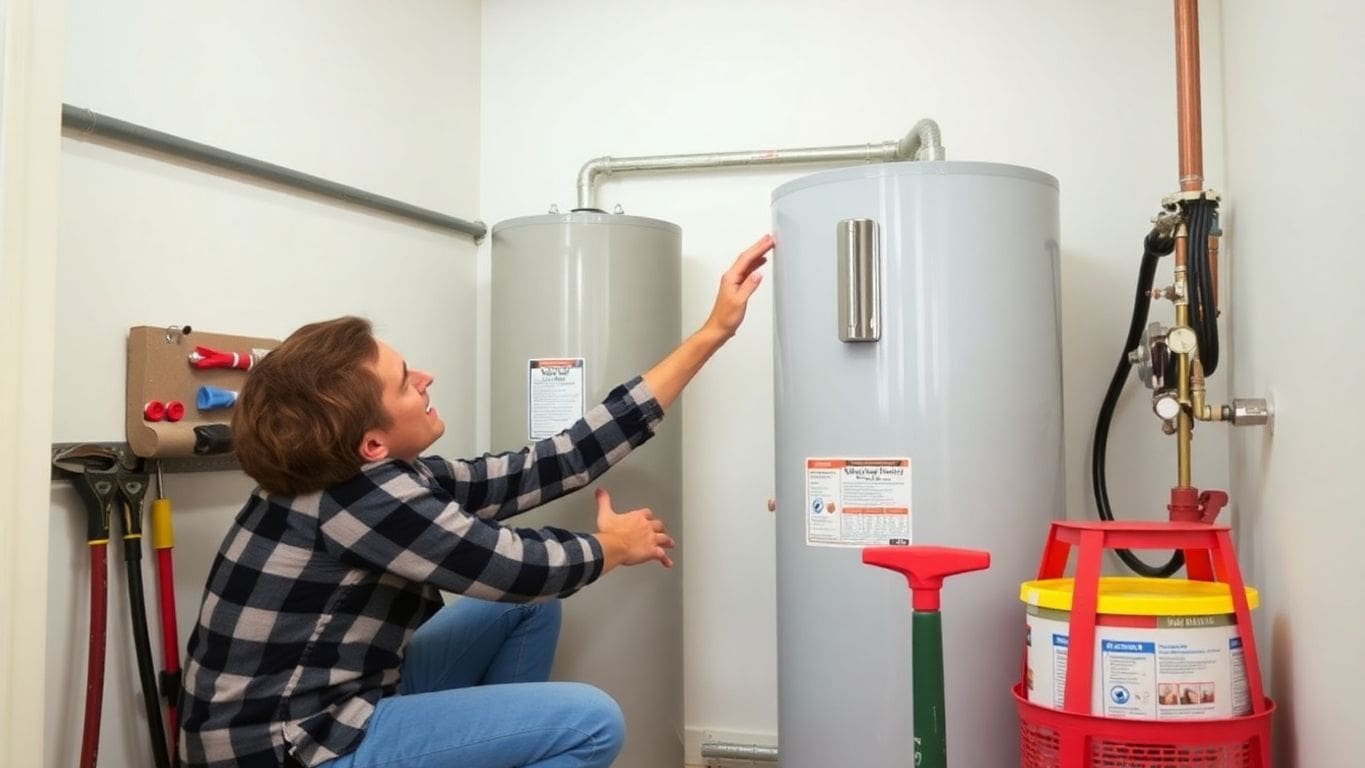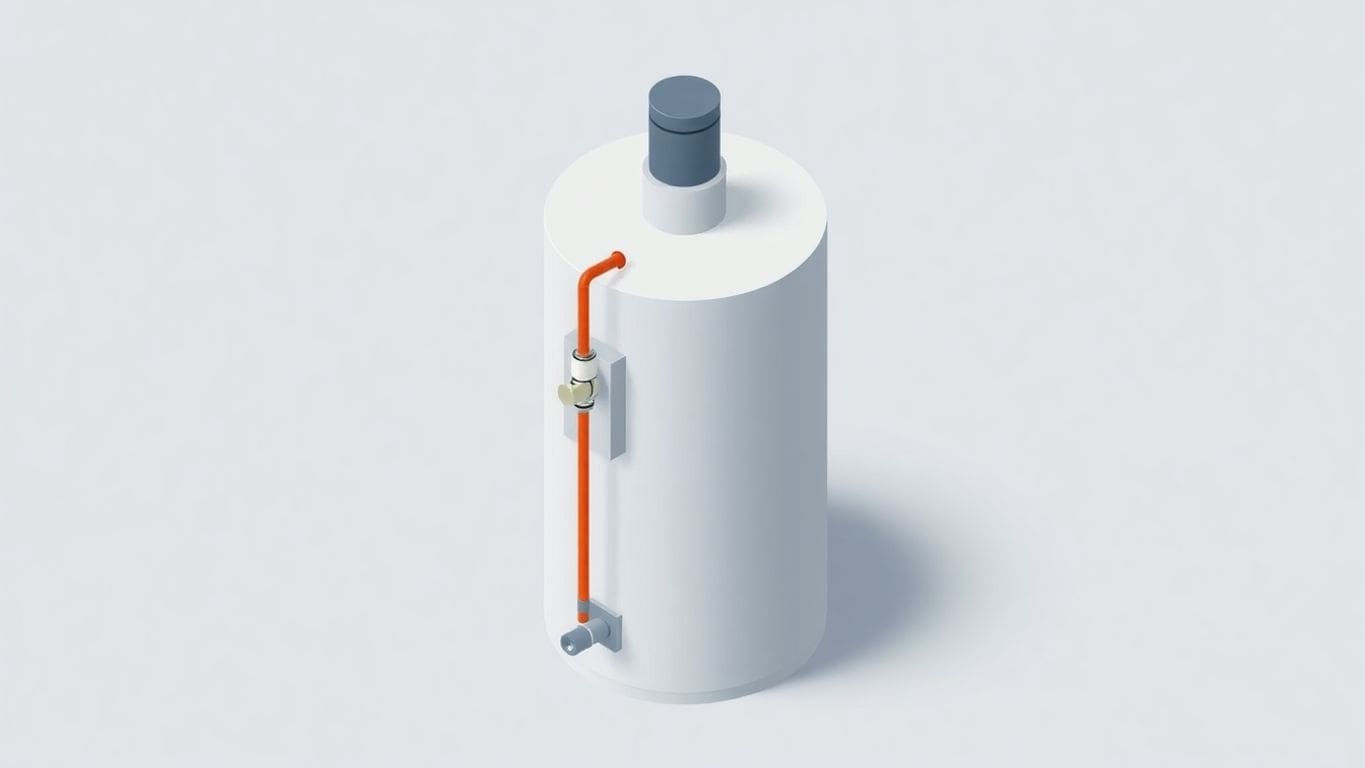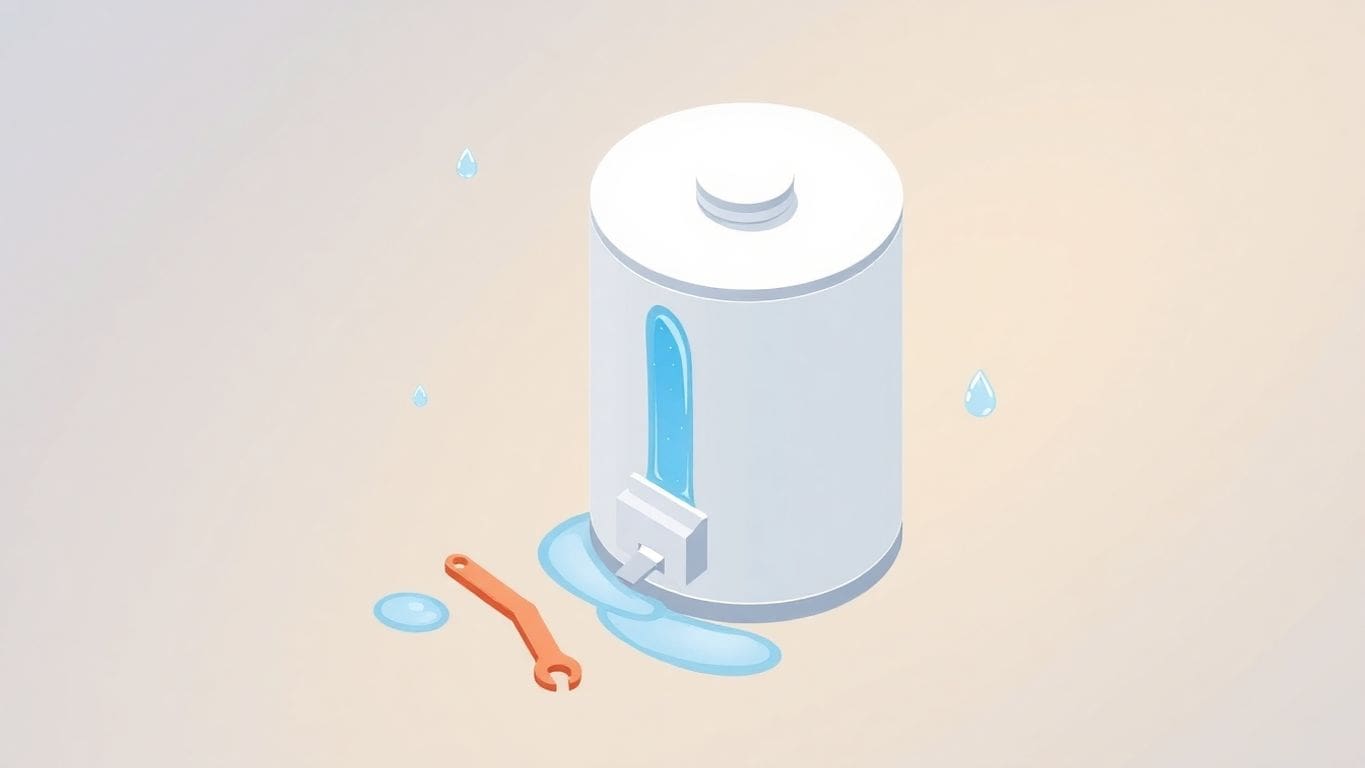
If you’ve ever had a flooded water heater, you know it can be a real headache. Water damage can wreak havoc on your home, and the big question is often, can a flooded water heater be repaired? Unfortunately, the answer is typically no. In this article, we’ll break down what to do after a flood, why repairs usually aren’t an option, and how to prevent future incidents.
When a water heater floods, it can cause a lot of problems. It’s important to know what these risks are so you can take the right steps to stay safe and protect your home.
A flooded water heater can really mess up your house. Water can soak into your floors, walls, and furniture, which can lead to structural damage. This can be super expensive to fix. Plus, all that water can create a perfect place for mold to grow, which is another big headache.
If you don’t deal with the water damage quickly, things can get worse over time. Wood can rot, metal can rust, and you might even have problems with the foundation of your house. These long-term issues can lower the value of your home and cost you a lot of money down the road.
Floodwater isn’t clean. It can have all sorts of nasty stuff in it, like sewage, chemicals, and bacteria. If your water heater floods, this contaminated water can spread around your house and make you sick. It’s really important to avoid contact with floodwater and to clean up any affected areas right away. Think about it, you don’t want to be breathing in mold spores or dealing with skin infections because of dirty water.
Flood water can contain harmful bacteria and contaminants. Always wear protective gear like gloves and masks when dealing with floodwater, and make sure to disinfect any areas that have been exposed.
When a water heater floods, quick action can help prevent more damage. Here’s what you should do right away.
Your safety is the most important thing. Water and electricity are very dangerous together. Before you do anything else, turn off the power to the water heater at the circuit breaker. This will help prevent electric shock. Make sure you’re standing on a dry surface when you do this. If you aren’t sure how to turn off the breaker, call an electrician. It’s better to be safe than sorry.
Next, stop more water from coming into the water heater. Find the cold water supply valve that leads to the heater and turn it off. This valve is usually located on top of the water heater. Turning off the water supply will stop the flooding and keep the problem from getting worse. If you can’t find the valve or it’s hard to reach, you might need to shut off the main water supply to your house.
After you’ve turned off the power and water, take a look at the damage. How much water is there? Where is it coming from? Is the water heater still leaking? Knowing how bad the damage is will help you decide what to do next. Remember, if the water heater is old, it might be time to replace it.
It’s important to act fast. Standing water can cause a lot of problems, like ruining floors and walls. Mold can also start to grow in just a day or two. Getting the water cleaned up quickly can save you money and trouble in the long run.
So, your water heater flooded. That’s not good news. You might be thinking, "Can’t I just fix it?" Well, most of the time, the answer is no. Here’s why:
Floodwater is dirty and can cause corrosion. This means parts inside your water heater, like valves and controls, can rust and break down. Even if it looks okay at first, corrosion can cause problems later on. It’s like a ticking time bomb. Replacing the unit is the best way to avoid future issues.
The insulation around your water heater keeps the water hot. When a water heater floods, the insulation gets wet and dirty. It’s almost impossible to clean it completely. Plus, wet insulation can make the tank rust from the outside. You don’t want to risk eco-friendly disposal options with a contaminated unit.
Using a water heater that has been flooded can be dangerous. The electrical parts can short circuit, causing a fire or electric shock. Gas water heaters can leak gas, which is also very dangerous. It’s just not worth the risk. Your safety is more important. It’s better to get a new water heater than to risk your health and home.
Replacing a flooded water heater might seem like a big expense, but it’s an investment in your safety and peace of mind. You’ll avoid potential hazards and ensure you have a reliable source of hot water.
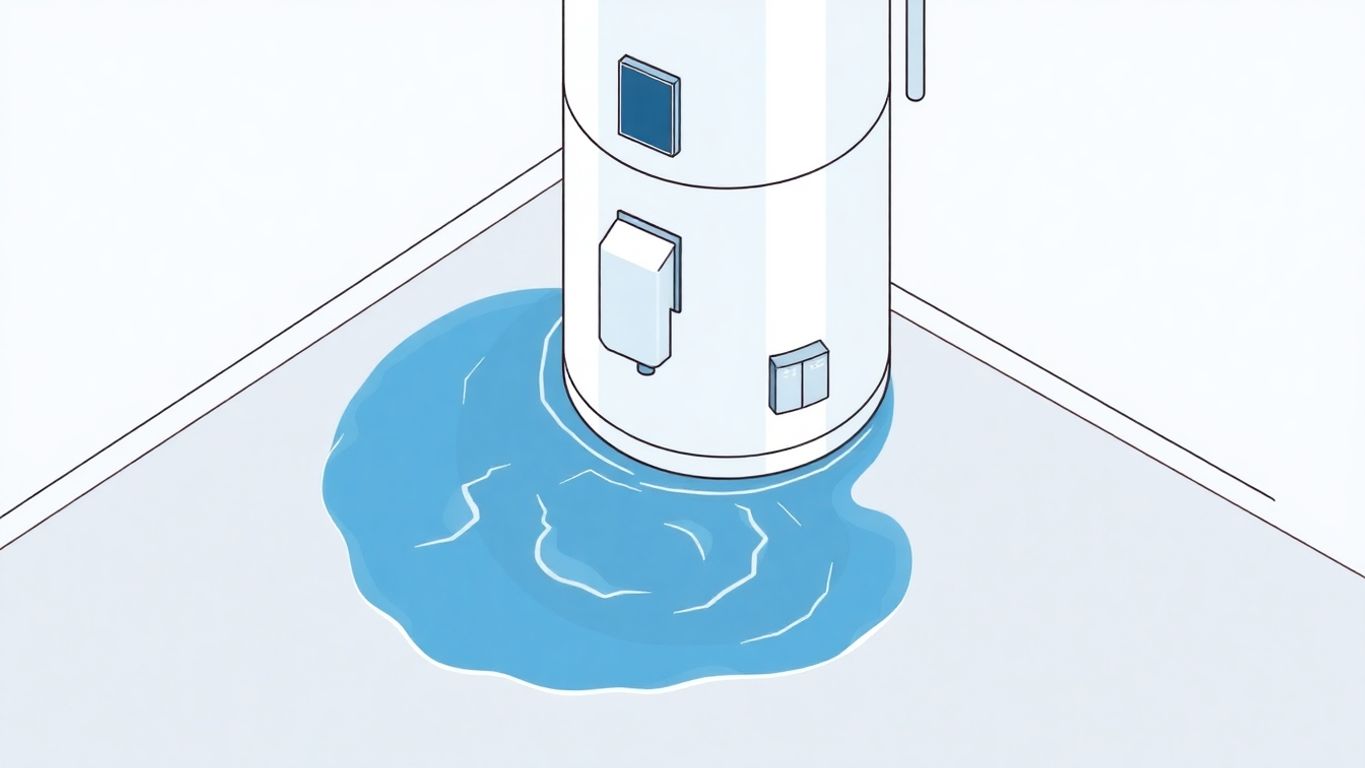
It’s important to know if your water heater is flooding. Catching it early can save you from big problems. Here’s what to look for:
One of the first things you might notice is water on the floor near your water heater. This is a big red flag. It could be a small leak, or it could mean a bigger problem is coming. If you see water, don’t ignore it!
Pay attention to any weird sounds coming from your water heater.
Here are some noises to listen for:
If you hear any of these noises, it’s time to check things out. It’s better to be safe than sorry.
Check the water coming from your faucets. If it’s rusty or has a weird color, your water heater might be rusting inside. Rust can cause leaks and other problems. Also, look at the water heater itself. See any rust spots? That’s another sign something’s not right.
Okay, so you’ve got a flooded water heater. It’s time to call in the pros. Don’t try to fix this yourself. It’s just not worth the risk. Here’s what you need to know about getting professional help.
Finding the right plumber is super important. You want someone who knows what they’re doing, especially with flood damage. Here’s how to find a good one:
When the plumber comes, they’ll check out the water heater. They’ll look for:
The plumber will tell you if the water heater can be fixed. Most of the time, a flooded water heater needs to be replaced. It’s usually not safe or worth it to repair it.
Replacing a water heater can cost some money. Here are some things that affect the price:
Get a few quotes from different plumbers. This helps you find the best price. Also, check if your insurance covers any of the cost.
Okay, so your water heater is toast. Time to get a new one! It might seem like a pain, but think of it as a chance to get something better than what you had before. Let’s look at some things to think about when you’re picking out a new water heater.
There are a few main types of water heaters out there. The most common is the traditional tank water heater. These are usually the cheapest to buy, but they can cost more to run over time. They store hot water in a tank, so you always have some ready to go. But, if you use all the hot water, you have to wait for it to heat up again.
Then there are tankless water heaters. These heat water on demand, so you never run out. They can be more expensive upfront, but they can save you money on your energy bill in the long run. Plus, they take up less space since you don’t need a big tank.
Heat pump water heaters are another option. They use electricity to move heat from one place to another, instead of generating heat directly. This makes them very energy-efficient, but they can also be more expensive to buy.
When you’re picking a new water heater, think about how energy efficient it is. This can save you money on your energy bills every month. Look for the Energy Star label. This means the water heater meets certain energy efficiency standards.
Also, think about the Energy Factor (EF). This tells you how efficient the water heater is. The higher the EF, the more efficient it is. Tankless water heaters usually have higher EFs than tank water heaters.
Getting the right size water heater is super important. If it’s too small, you’ll run out of hot water. If it’s too big, you’re wasting energy heating water you don’t need.
To figure out what size you need, think about how much hot water your family uses. How many people live in your house? How many showers do you take each day? Do you often run the dishwasher and washing machine at the same time?
Here’s a simple guide:
For tankless water heaters, you’ll need to think about the flow rate. This is how many gallons of hot water the heater can produce per minute. Make sure it’s enough to meet your needs. A plumber can help you figure out the right size for your home.
Choosing the right water heater can seem tricky, but it’s worth taking the time to do your research. Think about your budget, your energy needs, and how much hot water you use. With a little planning, you can find a water heater that will keep you comfortable for years to come.
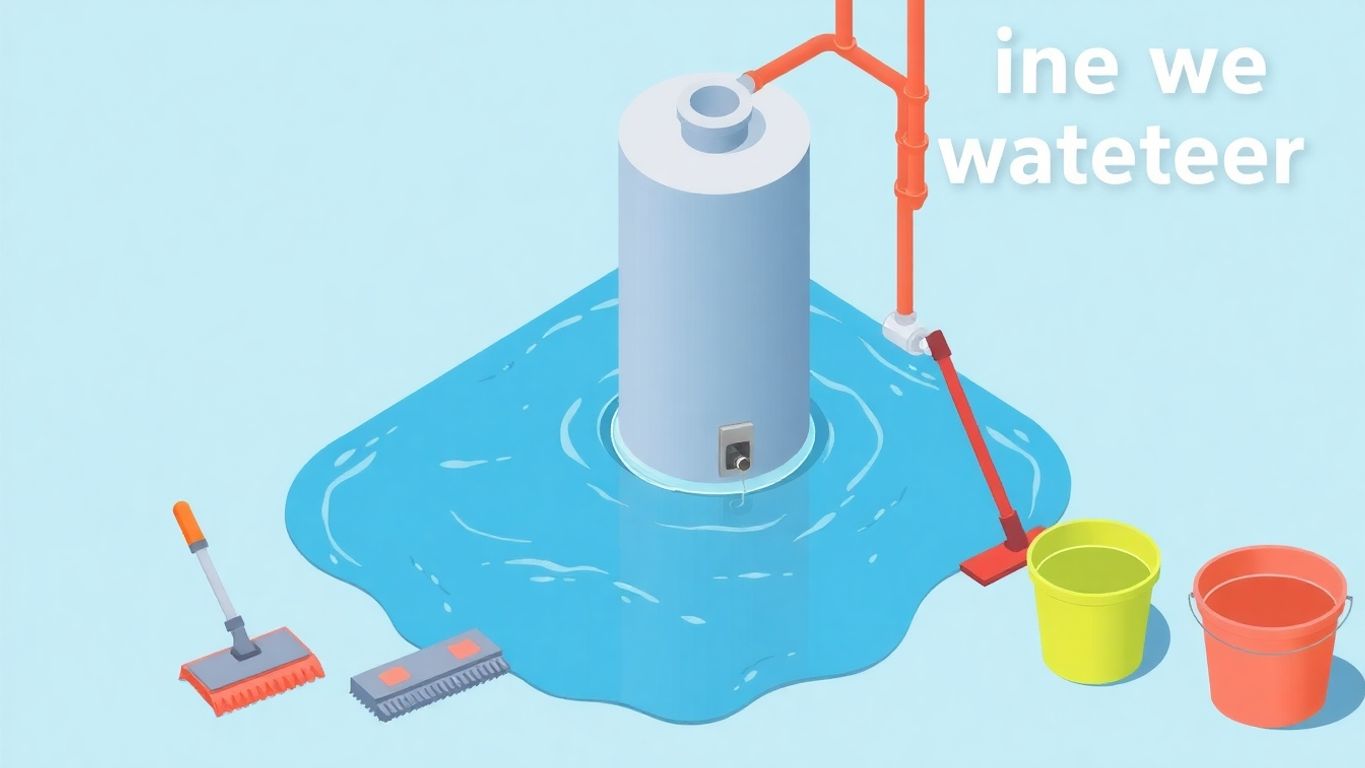
Flooding can cause big problems with your water heater. It’s best to take steps to keep it from happening again. Here’s how you can protect your home and water heater.
Taking care of your water heater can stop floods before they start. Here are some things you can do:
Keep an eye on your water heater for signs it’s getting old or needs repair. These signs can warn you about a possible flood:
If you see any of these signs, call a plumber right away. Don’t wait until it’s too late.
Flood alarms can give you an early warning if your water heater starts to leak. These alarms are easy to install and can save you a lot of trouble. Place them near the base of the water heater. If water is detected, the alarm will sound, giving you time to take action before a major flood happens.
Dealing with a flooded water heater is stressful. It’s good to know how your insurance might help. Let’s look at what you should think about when filing a claim.
First, check your homeowner’s insurance policy. Read it carefully to see what it covers. Most policies cover damage from things like burst pipes, but flood damage might need a separate flood insurance policy. Knowing what’s covered helps you understand what costs your insurance will pay for. If you’re not sure, call your insurance agent and ask them to explain your policy.
If your water heater flooded, take pictures and videos of the damage. This is important for your insurance claim. Keep any broken parts or damaged items. Write down everything that happened, including when the flood started and what got damaged. The more information you have, the easier it will be to file your claim. Make sure to document the water heater itself and any surrounding damage.
After you file a claim, an insurance adjuster will come to look at the damage. They will decide how much money the insurance company will pay. Be ready to show them your pictures and videos. Answer their questions honestly and clearly. If you don’t agree with what they offer, you can talk to them about it or get a second opinion. Remember, you have the right to get a fair settlement. If you have questions about emergency flood damage, ask the adjuster.
Dealing with insurance can be confusing. Keep good records, be patient, and don’t be afraid to ask for help. Your insurance company is there to help you get back on your feet after a flood.
After dealing with a flooded water heater, you might be thinking about what’s next. Instead of just replacing it with the same old thing, why not look at some modern options? They could save you money and make your life easier.
Tankless water heaters are pretty cool. Instead of heating a big tank of water all the time, they heat water only when you need it. This means you won’t run out of hot water in the middle of a shower. Plus, they can save you money on your energy bill because you’re not constantly heating water you might not use. They also take up less space than traditional water heaters. If you’re thinking about tankless water heaters, they’re worth a look.
Smart water heaters are the new kids on the block. You can control them with your phone! You can set schedules, track how much energy you’re using, and even get alerts if there’s a leak. Some can even learn your habits and adjust the water temperature automatically to save energy. It’s like having a water heater that thinks for itself.
Upgrading to a more efficient water heater can really pay off over time. Even though the initial cost might be higher, you’ll save money each month on your energy bill. Over the years, those savings can add up to a lot. Plus, many modern water heaters last longer than older models, so you won’t have to replace them as often. It’s a win-win!
No, a flooded water heater cannot be repaired. It must be replaced to ensure safety.
Turn off the power to the water heater and stop the water flow immediately.
Flooded water heaters can cause corrosion, electrical hazards, and health risks from contaminated water.
Look for water pooling around the unit, strange noises, or signs of rust.
The cost can vary, but it usually includes the price of the new heater and installation fees.
You can choose from traditional tank heaters, tankless models, and hybrid systems.
Regular maintenance, checking for leaks, and installing flood alarms can help prevent future flooding.
It depends on your policy. Check with your insurance company to understand your coverage.

